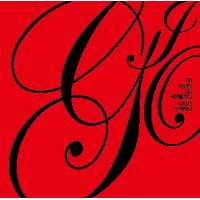Home » Jazz Articles » Album Review » The Global Jazz Orchestra: Global Warming / Globarhythm
The Global Jazz Orchestra: Global Warming / Globarhythm
Now the year is 2015, and that same writer has received from Nonomura copies of two more recent CDs by the GJO, Global Warming (released in 2011) and Globarhythm, recorded only a few months before it was mailed. Any thoughts that the intervening years may have been unkind to the GJO are quickly erased by the opening measures of Takuya Sakazaki's "J Tune," the sunlit curtain-raiser on Global Warming. The band sounds as sharp and well-groomed as ever, while the soloists (alto Ryosuke Asai and trumpeter Miki Hirose on "J Tune") are world-class. Hirose is showcased on the standard "That's All," which closes the album, tenor Tomomochi Takahashi on "My Ideal," alto Takahiro Miyazaki on "Darn That Dream." There's one more standard, George Gershwin's "Summertime," indifferently sung by Junko Koyanagi (nice chart, though, with ripping solos by tenor Mitsuhiro Furuya and alto Mitsuru Kobayashi).
The remainder of Global Warming is comprised of original compositions by Japanese writers including Kobayashi ("Turn to Run") and Hirose ("River Breeze," "Highway Robbery"). Ichiro Oshima's lively "One Second," set to a classic New Orleans shuffle beat, is especially charming. The animated solos are by Kobayashi (on soprano sax), trumpeter Sakie Naito, trombonist Oshima and bassist Takuya Sakazaki. "River Breeze" is light and lovely, "Highway Robbery" resonant and hard-hitting. There is one other vocal, by Kaoru Azuma, on Hitoma Nishiyama's ballad, "Gardens Under the Rain" (to which Azuma added the lyric). Pianist Sakiko Musada penned two more winners, the uninhibited "Forever" (solos by tenor Furuya and guitarist Jesse Forest) and even-tempered "Again" (solos by Furuya and alto Asai).
The GJO offers more blue-chip swinging on Globarhythm, starting with the lean and hungry "Two Predators" (tenors Furuya and Takahashi) trading well-placed volleys in a torrid chart by Hirose who arranged the album's lone standard, "How High the Moon," as a vehicle for vocalist Koyanagi (who fares slightly better than on "Summertime") and baritone saxophonist Ai Masuyama. The moon theme resurfaces on Yumiko Sunami's "A Rabbit of the Moon," on which the ensemble shines with soloists Hajime Teshima (bass) and Mitsuhiro Furuya (baritone sax). The spirit of Thad Jones is palpable on Scott Reeves' jaunty "One for Thad," which precedes Astor Piazzolla's breezy "Libertango" (trimly arranged by Pedro Giraudo). The admirable solos on "Thad" are by pianist Sachie Fujikawa, trombonists Oshima and David Boyle, trumpeter Naito and leader Nonomura on flugel, on "Libertango" by Hirose, Furuyama and alto Ayako Otake.
Reeves wrote the lyrical "Osaka June," with vocalese by Azuma, Masuda "Under the Rose," "Eternal Truths" and "It's a Chance!," each of which is top-drawer. His piano helps enliven "Chance!" (as do trombonist Kensuke Ota and drummer Takashi Ichihashi), while tenor Takahashi and trumpeter Atsushi Iwamoto share the honors on "Rose," Masuda, Teshima, Furuya, Forest and alto Miki Yokoyama on the tasteful finale, "Truths." With Global Warming and Globarhythm, the Global Jazz Orchestra, based at the Koyo Conservatory in Kobe, Japan, and presumably comprised in part (or perhaps entirely) by students there, confirms a tradition of excellence begun more than two decades ago. Long may it endure.
Track Listing
Global Warming -- J Tune; My Ideal; Forever; Darn That Dream; Again; Turn to Run; Gardens in the Rain; Elements in Moments; One Second; River Breeze; Summertime; Highway Robbery; That’s All. Globarhythm -- Two Predators; Osaka June; It’s a Chance!; A Rabbit of the Moon; How High the Moon; Under the Rose; Something for Thad; Libertango; Eternal Truths.
Personnel
Global Warming —Akira Nonomura: leader, trumpet; Eiji Iwata: trumpet; Miki Hirose: trumpet; Sakie Naito: trumpet; Ryosuke Asai: alto sax, flute (1-3, 5, 7, 8, 10, 13); Mitsuru Kobayashi: alto, soprano sax (6, 9, 11); Ayako Otake: alto sax, flute; Mitsuhiro Furuya: tenor sax, flute; Tomomichi Takahashi: tenor sax, flute; Ai Masuyama: baritone sax; Tetsuo Onishi: trombone; Ichiro Oshima: trombone; Hiromi Satake: trombone; Keiko Tamura: bass trombone; Jesse Forest: guitar; Misato Okumura: piano; Takuya Sakazaki: bass; Takashi Ichihashi: drums; Akiko Ogushi: percussion. Special guests – Takahiro Mizayaki: alto sax (4); Junko Koyanagi: vocal (11); Kaoru Azuma: vocal (7). Globarhythm —Akira Nonomura: leader, trumpet, flugelhorn; Eiji Iwata: trumpet; Miki Hirose: trumpet; Atshushi Iwamoto: trumpet; Sakie Naito: trumpet; Miki Yokoyama: alto, soprano sax, flute; Ayako Otake: alto sax, flute, clarinet; Mitsuhiro Furuya: tenor, soprano, baritone sax, flute, clarinet; Tomomishi Takahashi: tenor sax, flute; Ai Masuyama: baritone sax; Ichiro Oshima: trombone; Kensuke Ota: trombone; David Boyle: trombone; Hiromi Satake: bass trombone; Jesse Forest: guitar; Sachie Fujikawa: piano (1, 2, 4-8); Sakiko Masuda: piano (3, 9); Hajime Teshima: bass; Takashi Ichihashi: drums; Junko Koyanagi: vocal (5); Kaoru Azuma: vocal (2).
Album information
Title: Global Warming / Globarhythm | Year Released: 2015 | Record Label: Jazzlab / Bell Music
< Previous
The Who Live at Shea Stadium 1982
Comments
Tags
For the Love of Jazz
 All About Jazz has been a pillar of jazz since 1995, championing it as an art form and, more importantly, supporting the musicians who create it. Our enduring commitment has made "AAJ" one of the most culturally important websites of its kind, read by hundreds of thousands of fans, musicians and industry figures every month.
All About Jazz has been a pillar of jazz since 1995, championing it as an art form and, more importantly, supporting the musicians who create it. Our enduring commitment has made "AAJ" one of the most culturally important websites of its kind, read by hundreds of thousands of fans, musicians and industry figures every month.



















